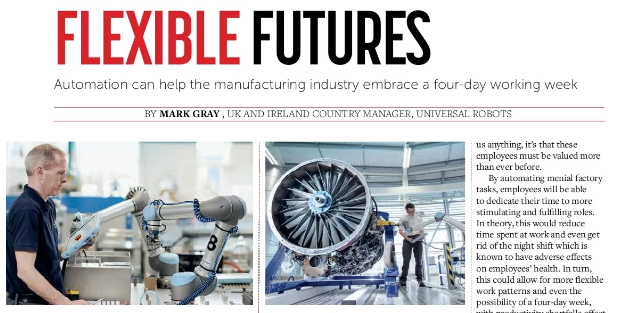Interesting post from UR

I have already done the thing of reducing my working week to 4 days, and taking the 20% cut in pay. On the plus side, the way the tax bands work, it means that I don't actually take a 20% hit to my take-home pay. With the UK government freezing these bands, this should make a significant reduction in the amount of tax I have to pay.
The problem with the system we have is that people are expected to work 5 days a week. If productivity goes up because of automation, that means the same number of people make more stuff. You end up in a spiral where people are making more and more stuff, which people have to buy, and then throw away because they have too much stuff and nowhere to put it.
You end up in a spiral where people are making more and more stuff, which people have to buy, and then throw away because they have too much stuff and nowhere to put it.
Quite! And have to be driven to consume because the economy is based on consumption. Come the revolution!!! I count myself really lucky that I've always worked in industries (quite diverse industries) where the typical product service life is 25 years, and in practice can be up to 50 or more - very unusual for electronics.
My mother has always had an interesting perspective on this, she's 106 so grew up in the 20s and 30s in a seriously poor household, and its probably genuinely the least materialistic person I know - having been used to surviving with nothing she never felt the need for "things" as she used to put it. (Interestingly one of her sisters in particular went from the same background in a very different direction. Which I think is not uncommon.) As she's always said, there are lots of jobs that need to be done, so why are people having to work at jobs that don't really need to be done. A Nobel Prize in Economics for whoever can solve that one.
The exception of course is guitars. There is no limit to the number of guitars that need to be produced, as the correct number of guitars to be owned is N+1 where N is the current number of guitars one owns, (Some people claim it's bikes or motorbikes, but they're wrong). I almost but don't entirely, take after my mother...
Yes that was the lightbulb moment when I realised the tax implication, and found HMRCs really good online tax / income estimator.
You end up in a spiral where people are making more and more stuff, which people have to buy, and then throw away because they have too much stuff and nowhere to put it.
I don't think that there is anything new in this. The utopian future where machines do the menial work and we play golf (or the guitar) does not exist.
At risk of being political, the fatal flaw in Ms Truss's strategy was that growth could only be obtained in two ways: (1) higher productivity, which cannot happen overnight, or (2) more people, but we sent them packing almost three years ago. What hadn't occurred to me was what Simon says - somebody has to buy the stuff.
You end up in a spiral where people are making more and more stuff, which people have to buy, and then throw away because they have too much stuff and nowhere to put it.
I don't think that there is anything new in this. The utopian future where machines do the menial work and we play golf (or the guitar) does not exist.
At risk of being political, the fatal flaw in Ms Truss's strategy was that growth could only be obtained in two ways: (1) higher productivity, which cannot happen overnight, or (2) more people, but we sent them packing almost three years ago. What hadn't occurred to me was what Simon says - somebody has to buy the stuff.
We're about to take you to the IET registration website. Don't worry though, you'll be sent straight back to the community after completing the registration.
Continue to the IET registration site